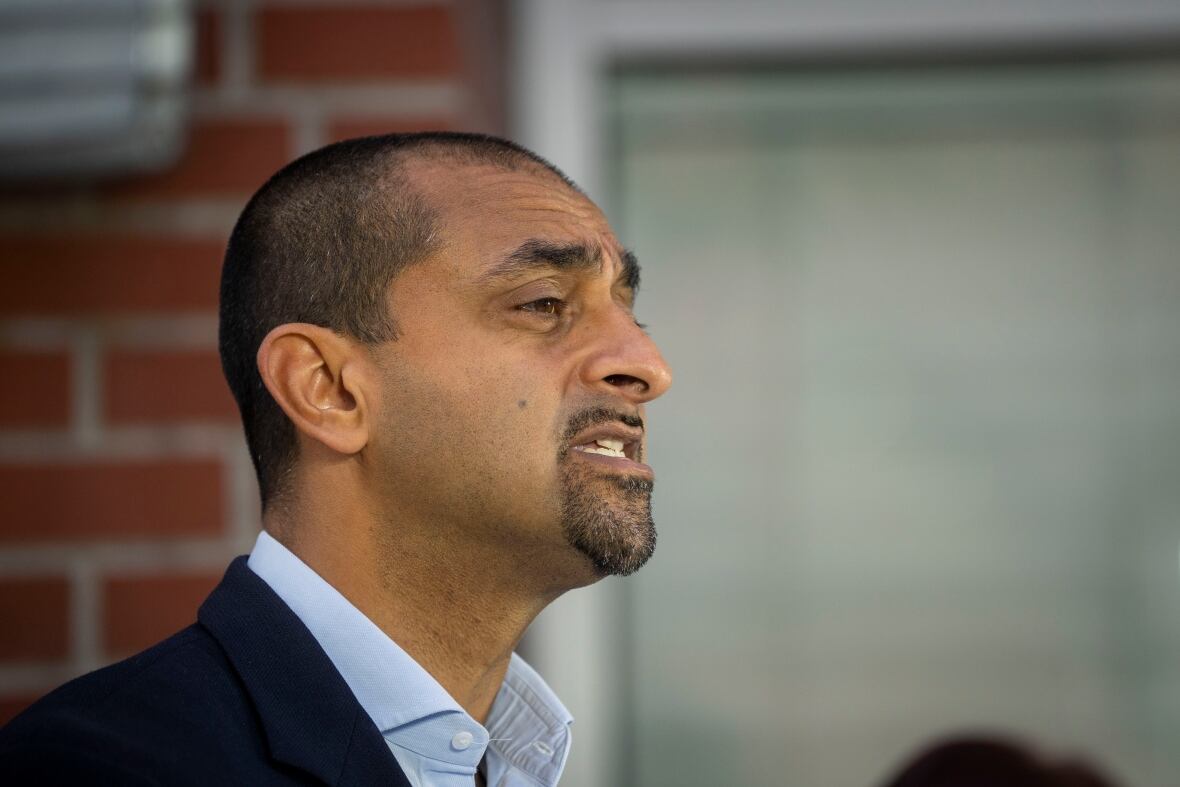U.S.-bound border traffic from B.C.'s Lower Mainland plummets further, dropping over 42% in March
Data shows nearly 43 per cent drop in vehicles with B.C. licence plates heading south in March

As U.S. President Donald Trump's tariffs on Canadian goods took hold at the start of this year, the number of vehicles with B.C. licence plates heading south via border crossings dropped sharply, data shows.
Data from the Whatcom Council of Governments — a U.S. regional government agency that is centred along the northwest Washington state border — shows a nearly 43 per cent drop in vehicles with B.C. licence plates heading south via Lower Mainland border crossings this March compared to March 2024.
The number of border crossings had also begun to drop in February, but they took a sharp downward turn after Trump imposed tariffs in the first week of March, amid a wave of anti-U.S. sentiment and a push to stay north of the border.
The mayor of Blaine, Wash., situated near the Canada-U.S. border, is pleading with Canadians to consider returning, even as the minister leading B.C.'s tariff response acknowledged there will continue to be pain on both sides of the border due to the trade war.
"I understand why Canadians want to boycott America and not support America," said Blaine Mayor Mary Lou Steward last week. "I understand that; however, by boycotting blue states [that elected Democrats] like Washington, what you're actually doing is making Trump happier.
"He does not like blue states. He is a president only for those who support him, not for the whole country. And so by causing Blaine to suffer, you're actually making his day."
Steward says British Columbians and Blaine residents have much in common, and she wanted to preserve the relationship as much as possible.
"There is a move in the county council to try and put forth a letter or resolution stating that we support Canadians coming. We want you to come. We want to make you feel welcome," she told Stephen Quinn, host of CBC's The Early Edition last week. "This does not represent us."
Other regional co-operation organizations along the West Coast have come out against the trade war.
Legislators representing the Pacific Northwest Economic Region, a non-profit that is funded by U.S. states and Canadian provinces from Alaska to Montana, recently signed a resolution that committed to advancing bilateral co-operation amid the tariff war.
The resolution "urges the governments of the United States and Canada to continue to prioritize and strengthen their bilateral relationship through open dialogue" and was signed by MLAs from five Canadian provinces, as well as lawmakers from five U.S. states.
However, there may be more short-term pain yet for Canadians, as Trump mulls a sweeping set of global tariffs, starting April 2, in what he is calling "Liberation Day."
Ravi Kahlon, the B.C. minister who is leading the province's response to the trade war, acknowledged that residents will wake up on Wednesday feeling nervous for their jobs and families on both sides of the border.
"President Trump is calling it the day of liberation. In fact, it's the day of isolation because the U.S. is now closing borders to the world, and that is going to put a challenge on us in the short term," Kahlon told reporters on Tuesday. "But we will come out of it strong."

Kahlon added that the province had strong trade partners in Europe, as well as strong trade partners in the Asia-Pacific region that were reaching out proactively as the province moves to diversify its exports.
"The approach that we're seeing from provinces, the response we're seeing from people across Canada, it fills me with great pride."
With files from The Early Edition and Justin McElroy


